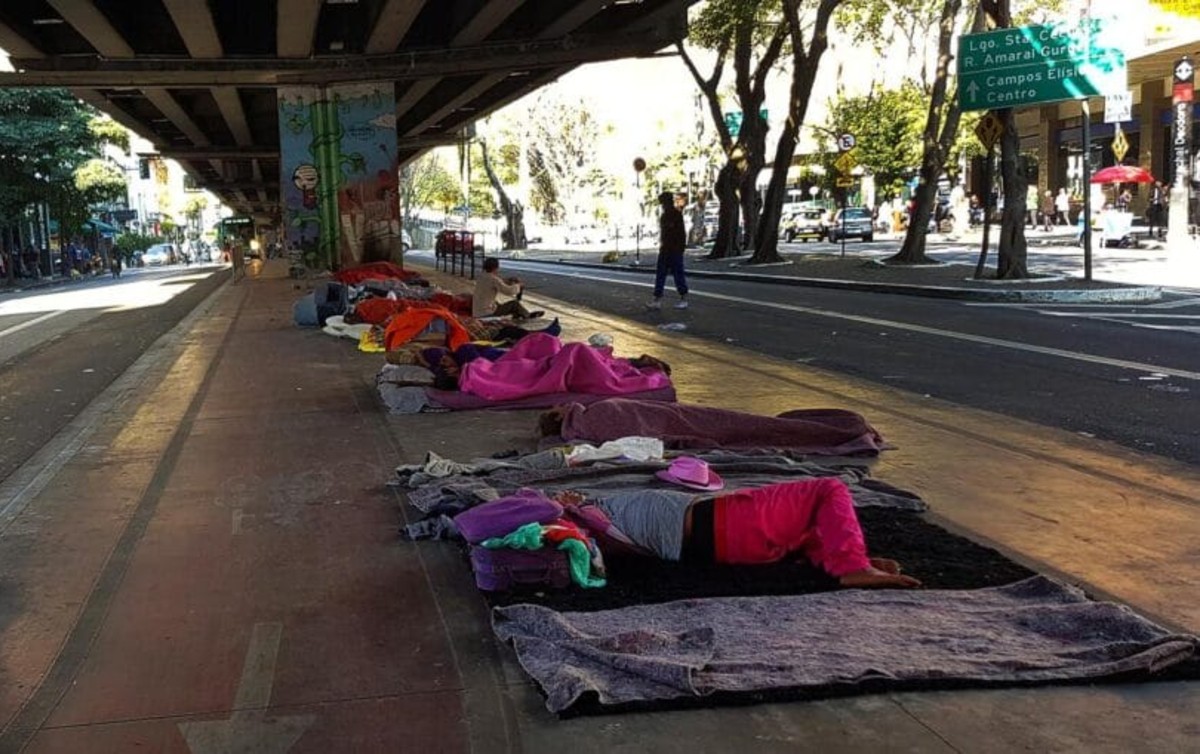The Transitional Government is assessing the budget potential to create new support for homeless people. The idea was proposed by the future First Lady Janja Silva. She would have asked the transitional group responsible for the human rights issue to “take special care” of these people in the context of social vulnerability.
Janja’s request was accepted by former Human Rights Minister Maria do Rosario (PT-RS). The Federal Deputy is part of the working group responsible for the issue. Now, this team is evaluating the possibility of creating public policies for this public, in an effort to remove people who need some form of assistance from the streets.
The outline for the new program is yet to be finalized. It is not known whether the transition group could provide assistance or at least implement a project aimed at this population. Now, the team is focusing on analyzing data from the current government. They complain about a blackout of data on federal councils targeting the street population.
“Caring for the most vulnerable people, especially the homeless population and Brazilian children, is a very direct concern of President Lula. Our future first lady spoke to me about these two aspects and gave me this message,” said Maria do Rosario in an interview published this week in O Globo newspaper.
“There is concern that the commission dedicates itself to all themes, but it pays particular attention to Brazilian childhood and families with children living on the streets,” the former minister continued. Maria do Rosario is one of the favorites to retake the position of Minister of Human Rights, but there is still no official confirmation on the matter.
Homeless population in Brazil Aid
In any case, the main focus of the elected government is to maintain the value of Auxilio Brazil at R$ 600 for the next year. This Wednesday (16) the transition should be officially handed over to the National Congress, called the PEC.
The document should detail the proposal to remove Brazil aid from the public spending ceiling for the next four years. In case the sentence is accepted, Elected government More attention will be paid to the design of the social program.
During the years of the Bolsonaro government, the selection process for the program drew the greatest criticism. Studies even point out that a large portion of the homeless population is unable to enter Cadunico due to lack of basic documentation.
Program redesign
In an interview this Tuesday (15), former social development and fight against hunger minister Teresa Campello said the elected government should gradually reform the Cadunico system in 2023.
“The government treated Cadastro Único very badly, it froze Cadastro Único, created a parallel register, created a parallel application, and created a set of information about beneficiaries and people who are poor because of the pandemic or because of crises,” said the former minister during the interview.
“A lot of people think there is fraud in the registration, I don’t see it that way. People were misled and misinformed. There is no social support network to support this because the federal government has neglected the social support network. So many started registering individually. So today you have a very problematic record that needs to be reviewed,” Campello finished.
As of the publication of this article, the federal government had not responded to the former minister’s criticism.
See what success is on the Internet:

Musicaholic. Twitter guru. Total bacon fanatic. Zombie ninja. Freelance student. Coffee fan. Gamer.



